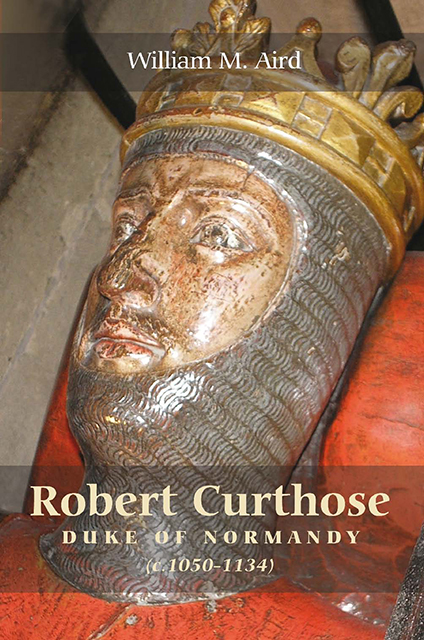Book contents
- Frontmatter
- Contents
- Dedication
- Acknowledgements
- Abbreviations
- Maps
- Genealogy: The Family Connections of Robert Curthose
- Introduction
- Chapter One Childhood
- Chapter Two The Dutiful Son
- Chapter Three The King's Son
- Chapter Four The Duke of Normandy, 1087–1096
- Chapter Five Miles Christi: The Soldier of Christ, 1095–1099
- Chapter Six The Returning Hero, 1100–1106
- Chapter Seven The Captive
- Epilogue
- Bibliography
- Index
Chapter Three - The King's Son
Published online by Cambridge University Press: 03 March 2023
- Frontmatter
- Contents
- Dedication
- Acknowledgements
- Abbreviations
- Maps
- Genealogy: The Family Connections of Robert Curthose
- Introduction
- Chapter One Childhood
- Chapter Two The Dutiful Son
- Chapter Three The King's Son
- Chapter Four The Duke of Normandy, 1087–1096
- Chapter Five Miles Christi: The Soldier of Christ, 1095–1099
- Chapter Six The Returning Hero, 1100–1106
- Chapter Seven The Captive
- Epilogue
- Bibliography
- Index
Summary
In March 1067, William, Duke of Normandy and, since Christmas Day 1066, King of England, returned to Normandy and was greeted by a triumphal adventus:
It was a time of winter, and of the austere Lenten penances. Nevertheless everywhere celebrations were held as if it were a time of high festival. The sun seemed to shine with the clear brightness of summer, far more strongly than usual at this season. The inhabitants of humble or remote places flocked to the towns or anywhere else where there was a chance of seeing the king. When he entered his metropolitan city of Rouen old men, boys, matrons and all the citizens came out to see him; they shouted out to welcome his return, so that you could have thought the whole city was cheering, as did Rome formerly when it joyfully applauded Pompey. Communities of monks and clerks vied with each other as to who could show the greatest deference at the arrival of their beloved protector. Nothing which ought to have been done in celebration of such honour was left undone. Furthermore, if anything new could be devised, it was added.
The Conqueror's family had remained in Normandy during the arduous campaign in England. Robert's mother Matilda, operating with the help of a council of advisers, had ensured that Normandy's government continued smoothly. Whether Robert had a direct role in the government of Normandy during his father's absence is not known, but as the recognised heir to the duchy he was kept at his mother's side for safety in the anxious months between William's departure in September 1066 and the triumphal return of March 1067. Matilda was ruling as much on behalf of her son as her absent husband. Mother and eldest son working together strengthened the bond between them, which was to serve Robert so well a decade later. The new king brought home lavish gifts for the churches of Normandy and William of Poitiers noted in particular the needlework and the gold thread for which the English were famous. In addition, Robert's father brought over a number of high-ranking Englishmen including Archbishop Stigand of Canterbury and three leading earls, Edwin, Morcar and Waltheof. Also among them was Edgar Ætheling, a member of the West Saxon royal family who had briefly been regarded as a candidate for the English throne.
- Type
- Chapter
- Information
- Robert `Curthose', Duke of Normandy [c. 1050-1134] , pp. 60 - 98Publisher: Boydell & BrewerPrint publication year: 2011

